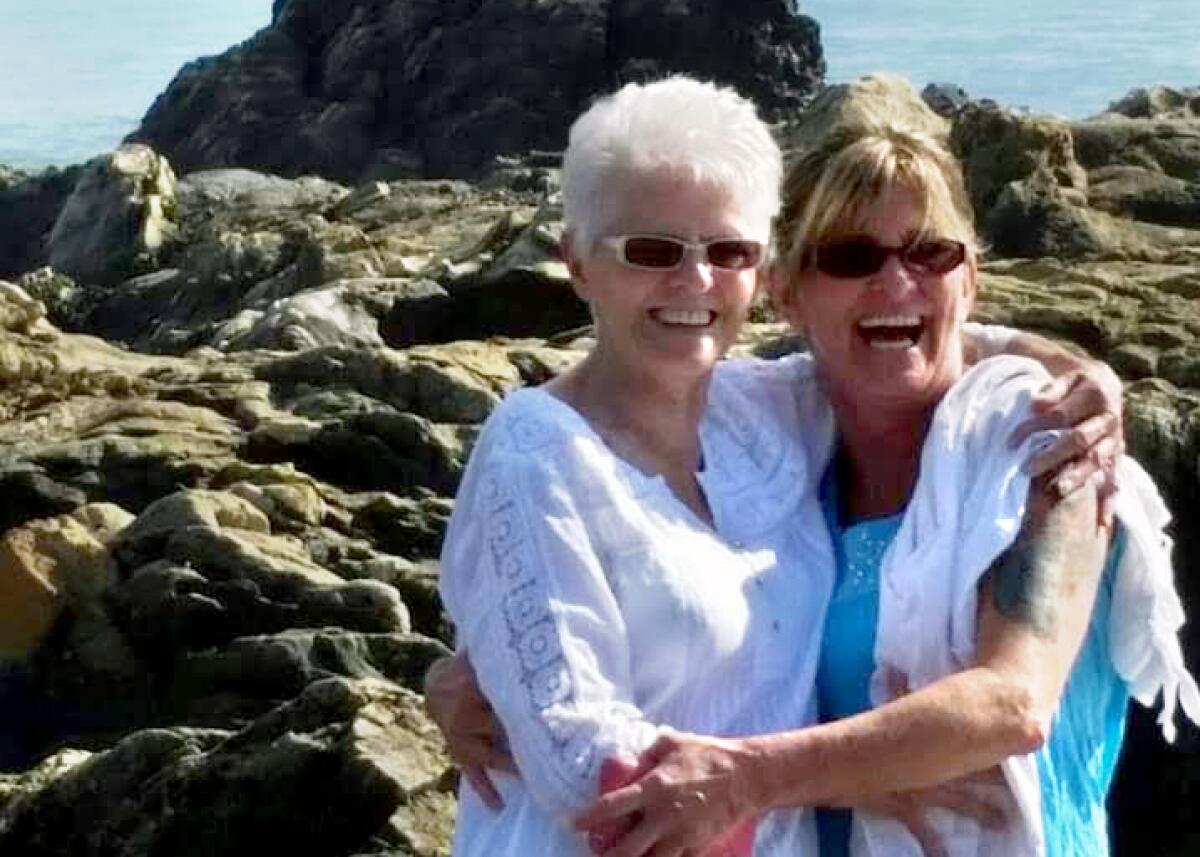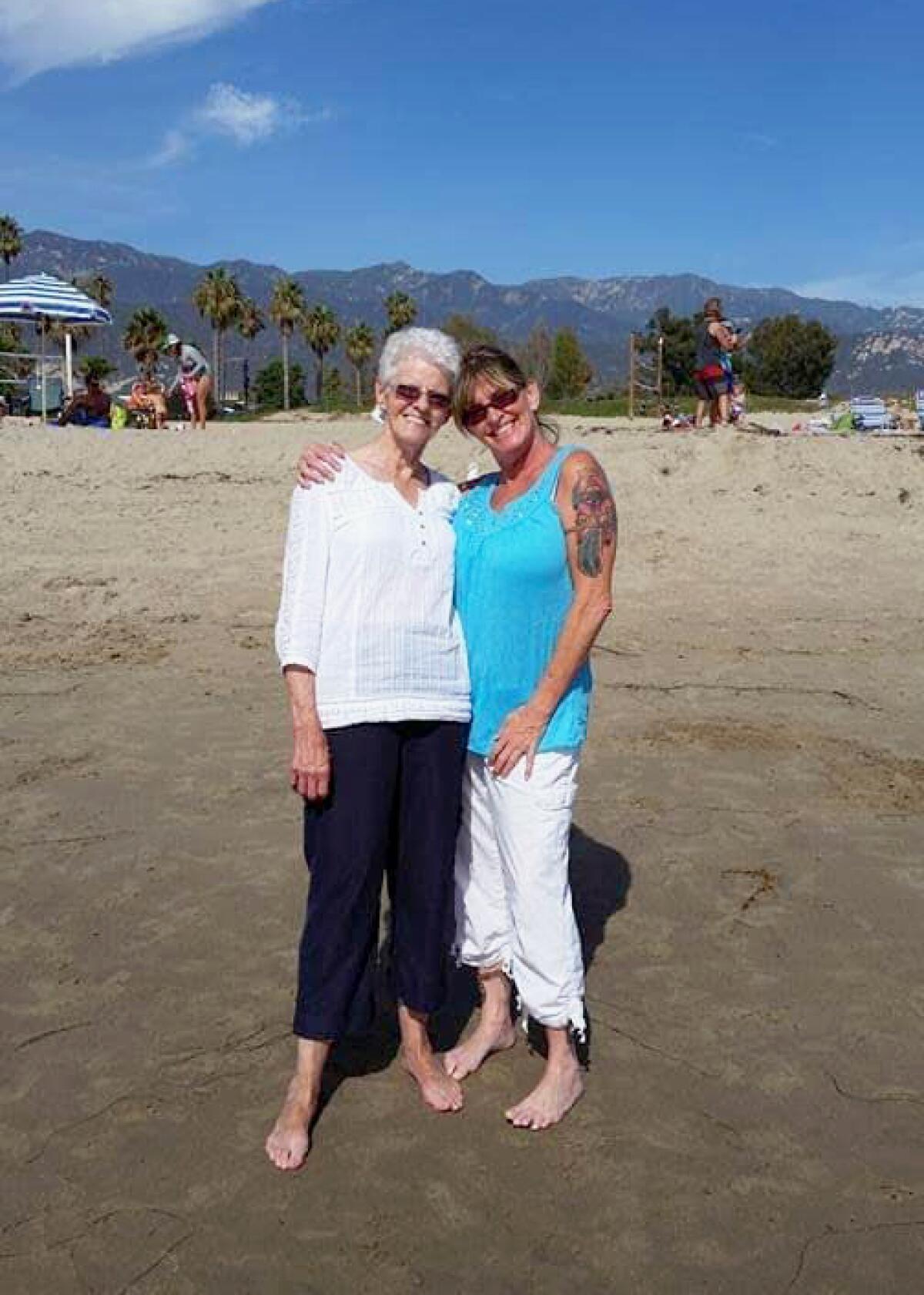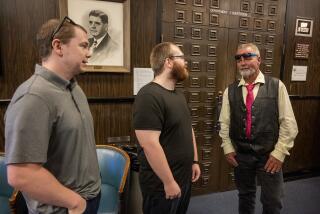A man convicted in killing of two women was released the same day he was sentenced for the crime

A man convicted of killing two women in a brutal slaying in Ojai Valley was sentenced — and then freed the same day — following a Tuesday morning hearing in Ventura County Superior Court.
Shawn Shirck, 29, was quickly identified as the prime suspect and arrested hours after deputies found the bodies of Margaret Dahl, 59, and her mother Phyllis Porter, 82, who had both been stabbed to death, on Aug. 24, 2019, in Oak View.
But the jury’s decision to convict Shirck on charges of involuntary manslaughter, instead of the more serious charge of murder, as well as court delays caused by the COVID-19 pandemic, meant Shirck was released Tuesday for time served, according to court records. He was released despite receiving the longest possible sentence for his conviction.
“We’re very disgusted, sick to our stomachs,” said Amanda Dahl, Margaret Dahl’s daughter-in-law. “I don’t think the justice system did us any justice. I don’t think 3½ years for murdering two women is a punishment.”
Had Shirck been convicted of murder, he could have faced a possible sentence of 52 years to life. However, defense attorneys argued Shirck was intoxicated to the point of unconsciousness during the attack and that he was also suffering from post-traumatic stress disorder because of physical abuse during his childhood.
Jurors found prosecutors did not meet the burden of proof required for a murder conviction and instead found Shirck guilty of involuntary manslaughter.
On Tuesday morning, Shirck was sentenced in Ventura County court to six years and four months for the two deaths.
Because he’d been in custody for nearly four years during the trial, and because state law gave him an additional day‘s credit for each day he spent in county jail, Shirck walked into his sentencing hearing Tuesday with a credit of 2,773 days served, or more than 7½ years, according to court records.
After Shirck was sentenced to the legal maximum for involuntary manslaughter, Judge Ryan Wright ruled he could be released for time served. Shirck was ordered to report to a parole office within 24 hours.
“He only has to do half that time,” Dahl said. “I don’t think being drunk is an OK escape from this. It’s just baffling.”
The unique set of circumstances has troubled relatives of the two victims, who said they’ve become committed to change state laws because of it.
“This is not justice,” Dahl said. “That’s not OK with me.”
Shirck had been reportedly upset on the day of the killings because he and his girlfriend broke up, according to family members who sat through the trial.

Shirck headed to his father’s house where Margaret Dahl, who had been in a relationship with his father, was staying with her mother.
Witnesses testified that Shirck had been physically abused at the home, and his defense attorney argued he was suffering from PTSD as well as drinking heavily that day.
Shirck’s state of mind quickly became a central issue during the trial, as defense attorneys argued that he drank so much before the killings that he was unconscious when the crimes occurred.
According to the state penal code, “If someone dies as a result of the actions of a person who was unconscious due to voluntary intoxication, then the killing is involuntary manslaughter.”
Dahl had reportedly been stabbed about 20 times, according to the Ventura County Star. Prosecutors also argued during the trial Shirck showed signs that he was conscious during the attack, pointing to the multiple stabbings in the attack and the fact Shirck broke through two doors to reach Margaret Dahl during the attack.
One of the 12 jurors in the case told the Ojai Valley News that prosecutors failed to show intent, and failed to prove that Shirck was in fact conscious during the killings.
“I think what the verdict came down to, one fulcrum point in particular, the people have the burden of proving, beyond reasonable doubt, that the defendant was not unconscious in the legal sense,” the unnamed juror told the newspaper. “We agreed pretty clearly they did not do that.”
Chief Deputy Public Defender Ayala Benefraim, Shirck’s defense attorney, said that when she first took the case she wasn’t aware of the possibility of voluntary intoxication causing unconsciousness as a defense. Other attorneys she consulted with were also unaware of the unusual defense.
“It’s not a common situation, but I don’t think this is a common set of facts,” Benefraim said in an interview. “He was blacked out and had a PTSD episode. The more we looked into it, the more it collaborated with the details.”
Benefraim added Shirck would have received two days’ credit for each day served in county jail in any other county in the state.
Amanda Dahl said she and other relatives were not convinced by the argument Shirck was unconscious during the attack, adding that Shirck passed on to the family members a letter apologizing for the killings and the pain caused by his actions.
“I think it was just an excuse,” she said. “He brutally attacked them and got away with it.”
More to Read
Sign up for Essential California
The most important California stories and recommendations in your inbox every morning.
You may occasionally receive promotional content from the Los Angeles Times.











